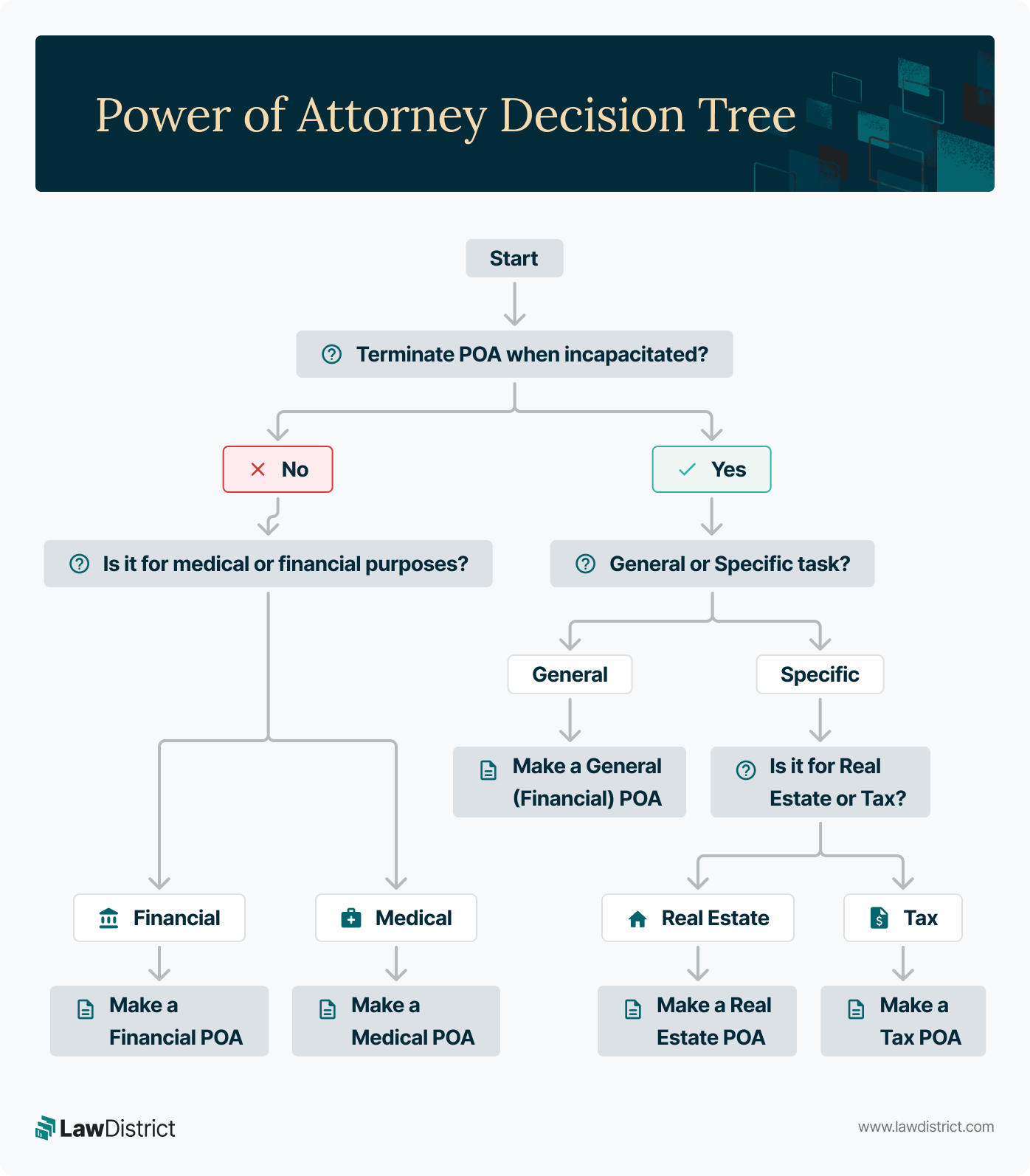Are you unavailable and still need someone to file your taxes, deposit your checks, or mortgage your home? You can create a legal document called a Power of Attorney, allowing you to grant powers to someone you trust to act as attorney-in-fact or agent.
In Texas, the law does not require hiring an attorney to draft the POA. You can do it yourself. The caveat is that you must follow Texas requirements and include the power of attorney rights and limitations as per the statutes. Today, we will discuss the most important requirements to include and give you more details about the Power of Attorney in the state of Texas.
Types of Power of Attorney Available in Texas
Texas recognizes at least five types of POAs. Each POA enables you to give your agent special powers that permit them to perform the tasks specified in the document. The following are five POA options to help you know how to choose the right type of POA:
- General POA: This document grants authority to the agent to handle legal and financial issues on your behalf. It remains enforceable until you revoke it.
- Durable POA: In this POA, authority lasts even after you become incapacitated. It is commonly used in real estate planning.
- Specific or Limited POA: Gives attorney-in-fact permission to handle certain tasks within a limited scope of issues.
- Medical POA: It authorizes an attorney-in-fact to make healthcare-related decisions on your behalf when you are unable to do it.
- Springing POA: This document allows the agent to take responsibility when the principal becomes incapacitated or disabled. It's like a standby document in case anything happens to you.
Legal Requirements for a Texas Power of Attorney
For your POA to be legally binding and valid, you must follow the Texas Durable Power of Attorney Code under Title 2P Chapter 752. You can also use a Statutory Durable Power of Attorney (SDPOA) form. Now let’s dive into the specific legal requirements.
The principal's legal capacity
The law requires the person creating the POA to be at least 18 years old and of sound mind. You must understand the nature and consequences of granting powers to an agent. In addition, you must create the POA voluntarily and not under coercion or undue influence, but fully express your intent to grant power to the chosen person.
Texas law requires the POA to be done in writing. Verbal POAs are often not recognized. You must also sign the document with a notary public present. Their role is to acknowledge your signature and provide further authentification.
Agent acceptance
The agent or attorney-in-fact must accept the appointment and show a willingness to fulfill their duties. It is recommended to research how to choose an agent for POA. Afterward, you can consult them and confirm their availability and willingness to be called upon to act.
Powers granted
The principal should clearly outline the specific powers they want the agent to have and state their limitations. If you give broad powers (without specification), the law considers the powers given as general.
For example, instead of only stating the agent has legal permission to conduct real estate matters, go the extra mile to mention the specific roles. Do you want them to buy, sell, lease, mortgage, or manage the property? All of the above?
Who Needs a Power of Attorney in Texas
A POA is a crucial document for individuals with varying needs and may be limited to function in certain circumstances. Examples of people who may need a POA include:
- Seniors and elderly people
- People with complicated medical conditions
- People planning for the future (in case they become incapacitated or are unavailable)
- Entrepreneurs and business owners
- Parents and guardians of minors
- Military personnel
How Long Does POA Last in Texas
In Texas, the POA duration depends on the type of POA you choose, your preference, and when you need to revoke it. The following table shows how long a POA can last.
| Type of POA
|
Duration
|
| General
|
- Revoked
- Incapacitated
- Death
- Specific date
|
| Durable
|
- Revoked
- Death
- Specific date or event
|
| Limited
|
- Specified date
- Upon task completion
|
| Medical
|
- Revoked
- No longer incapacitated
- Death
|
Texas allows you to revoke the POA at any time, but you must learn how to revoke a Power of Attorney to ensure you do it right.
Sometimes, understanding the various features of a POA can be complicated. A POA decision tree provides a visual representation that helps you make an informed decision when considering POA. The tree contains some questions and gives you options to guide you in determining which POA to use. The following is a sample POA decision tree.

Once you’ve decided what type of POA you want to have, you are ready to create your document.
Start Your Power of Attorney



